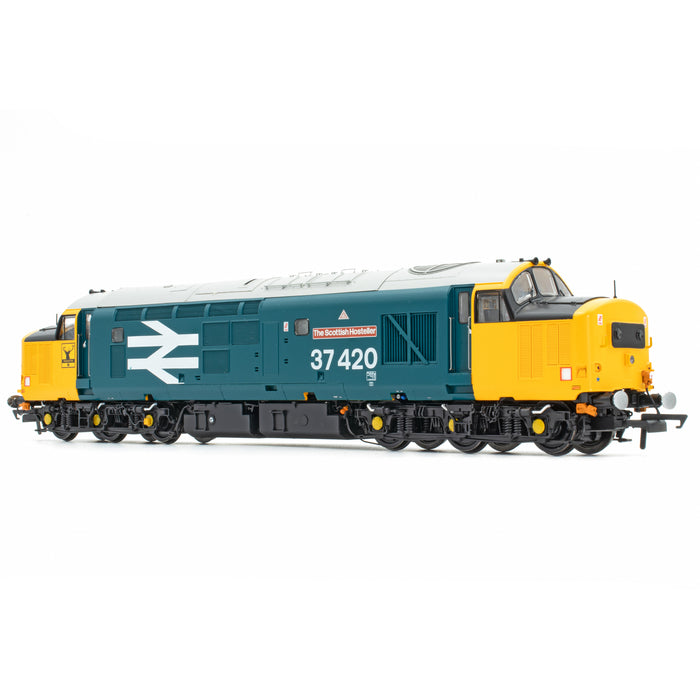
Class 37 - Large Logo Blue - 37420
Pre Order Item
This item is on Pre Order, with an expected delivery date of Quarter 4, 2025

Pre Order Item
This item is on Pre Order, with an expected delivery date of Quarter 4, 2025
37420 The Scottish Hosteller Large Logo w/Highland ‘stag’
No. 37420 was the penultimate member of the Inverness ‘eight’, Nos. 37414-37421, the octet of locomotives allocated to the far north for working passenger and freight trains to Aberdeen, Kyle of Lochalsh and Wick/Thurso, that famously wore the Highland Rail ‘stag’ branding. Converted to Class 37/4 configuration in December 1985 its new specification included various cosmetic upgrades as well as electric train heat (ETH) capability rated at 30, enough to provide juice to six or seven pressure vent Mk.2s, modified CP7 bogies regeared for a top speed of 80 mph and Brush BA1005A alternators to replace the original generators.The Inverness batch was also fitted with Radio Electronic Token Block (RETB) equipment soon after ‘refurbishment’ to work the Dingwall-Kyle line and the recently commissioned section to Wick and Thurso. Like all 31 members of the sub class, the former No. 37297 (originally D6997), was released from Crewe Works in large logo livery. However, in comparison to the Eastfield and Cardiff allocations, and the RETB-fitted Class 37/0s that preceded them, this group did not universally receive names.Happily No. 37420 was one of the three that did, being dedicated The Scottish Hosteller on 28 June 1986 at the Inverness Open Day. After four and a half years working out of the Highland capital, it joined the Thornaby FCTY Trainload pool in May 1990 retaining its full Scottish regalia, albeit with a colourful Kingfisher logo on the cabside, until it became the last ‘37/4’ painted into the general user InterCity Mainline scheme the following December. Six years later it also became the last Type 3 to carry Regional Railways livery and it was switched off in July 2000. It was cut up at Hull’s of Rotherham in February 2008.
Lighting and DCC Specifics